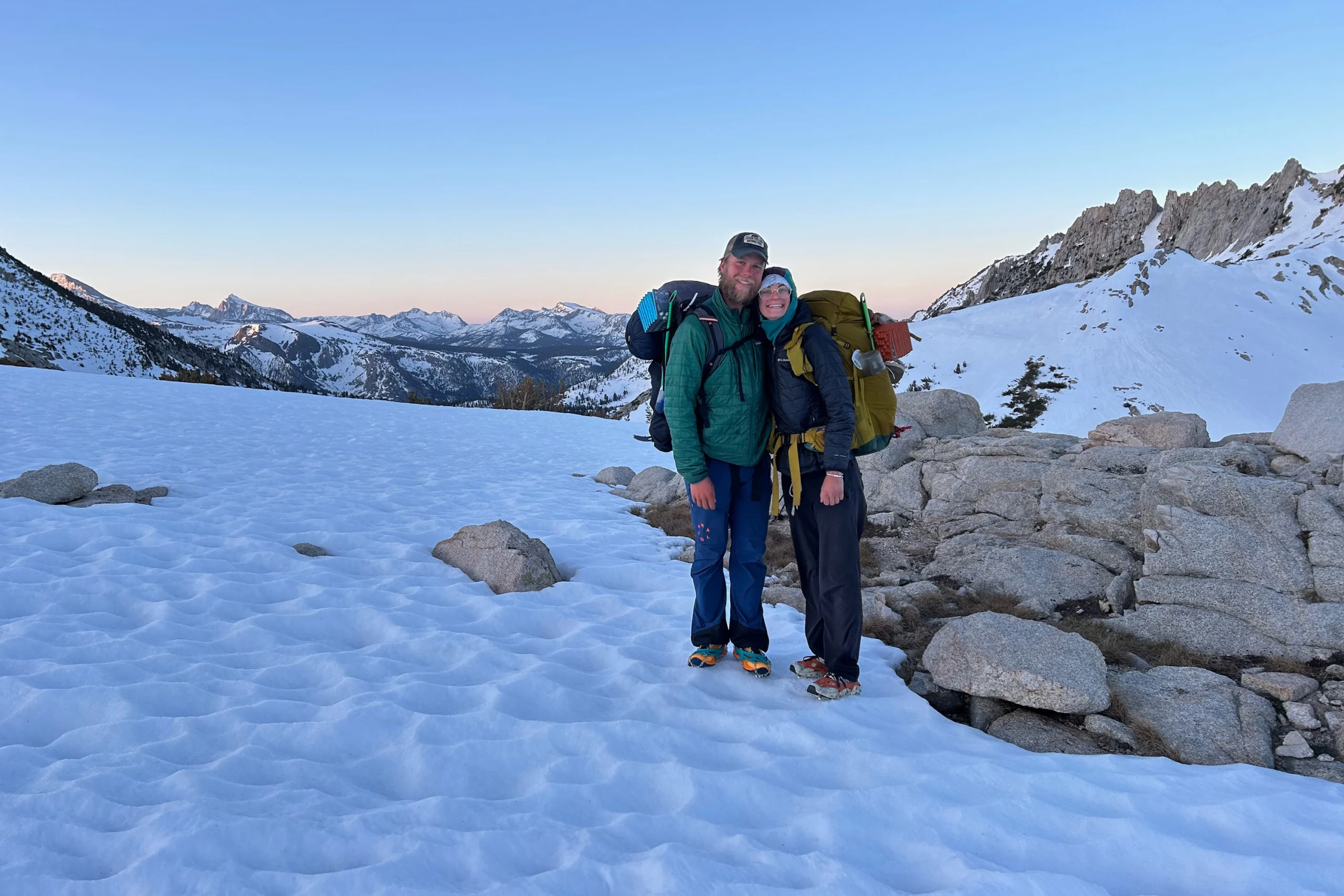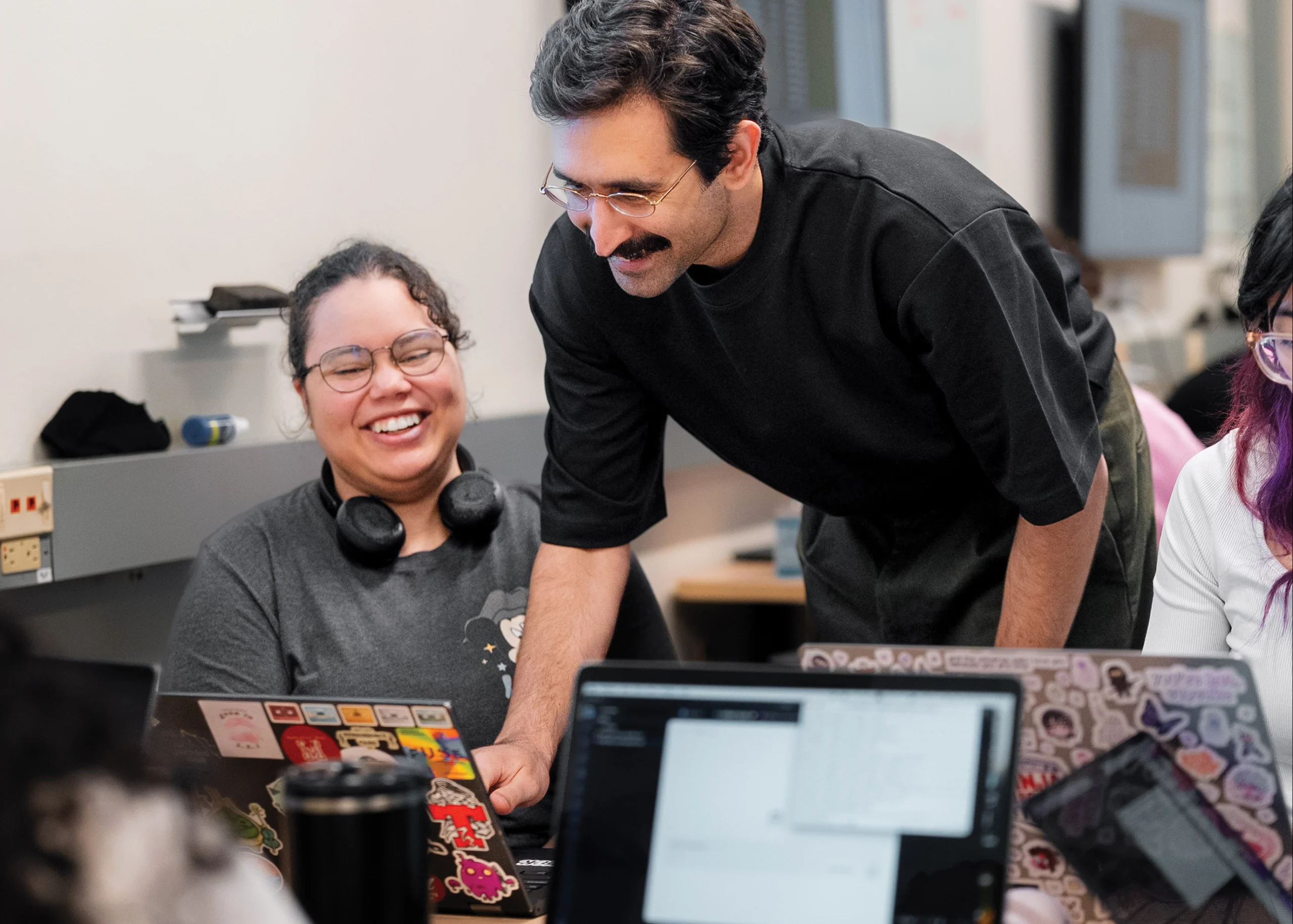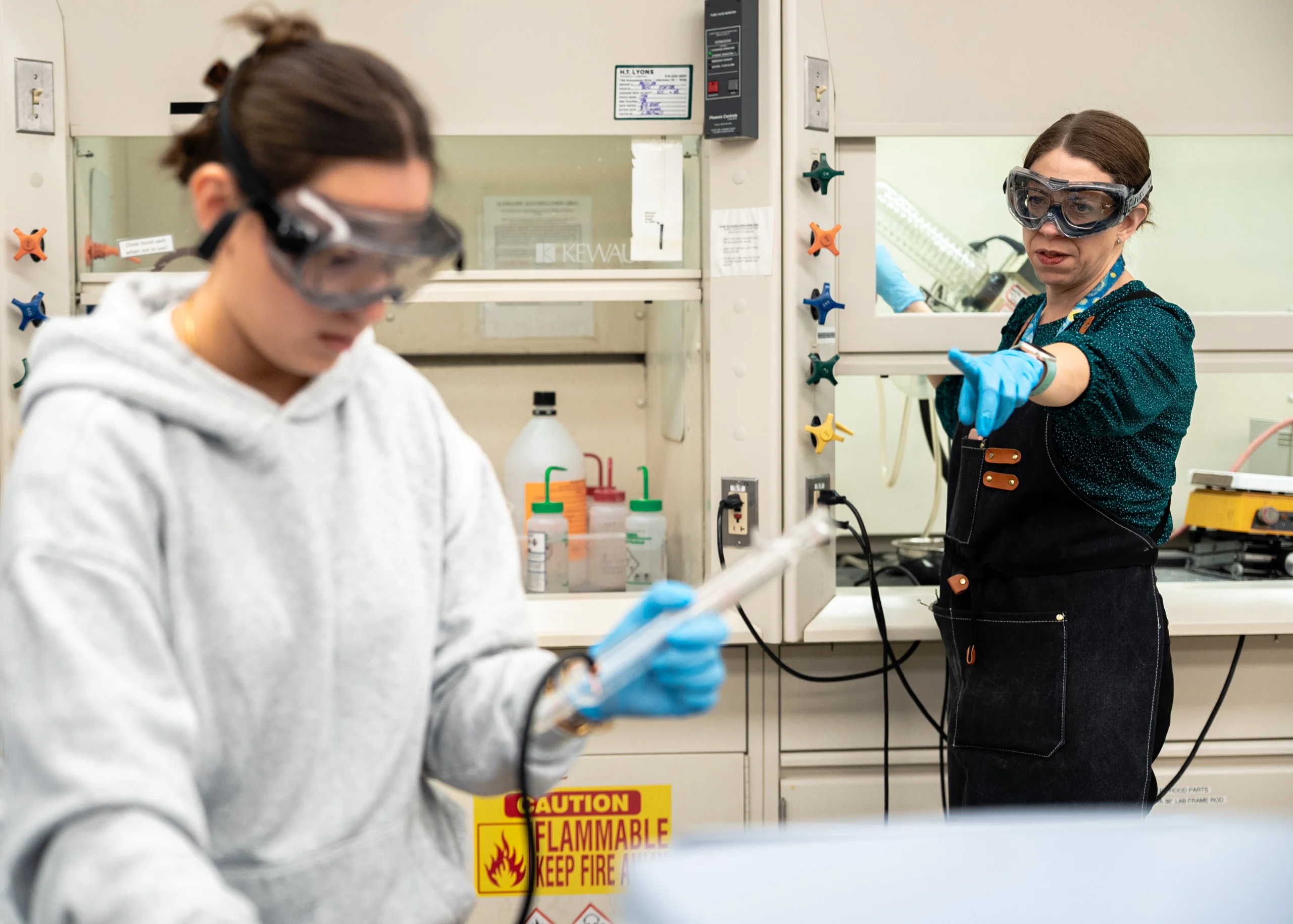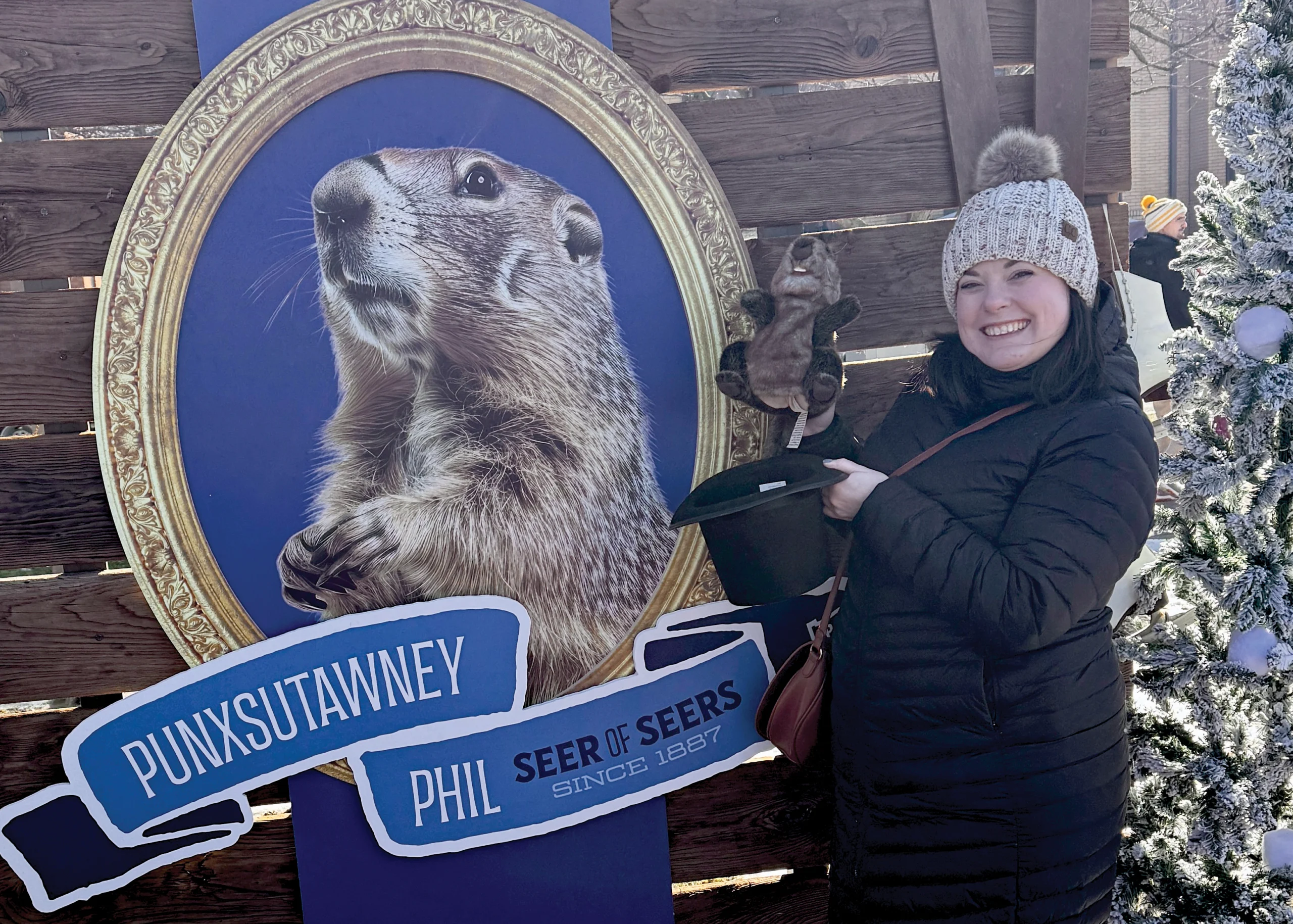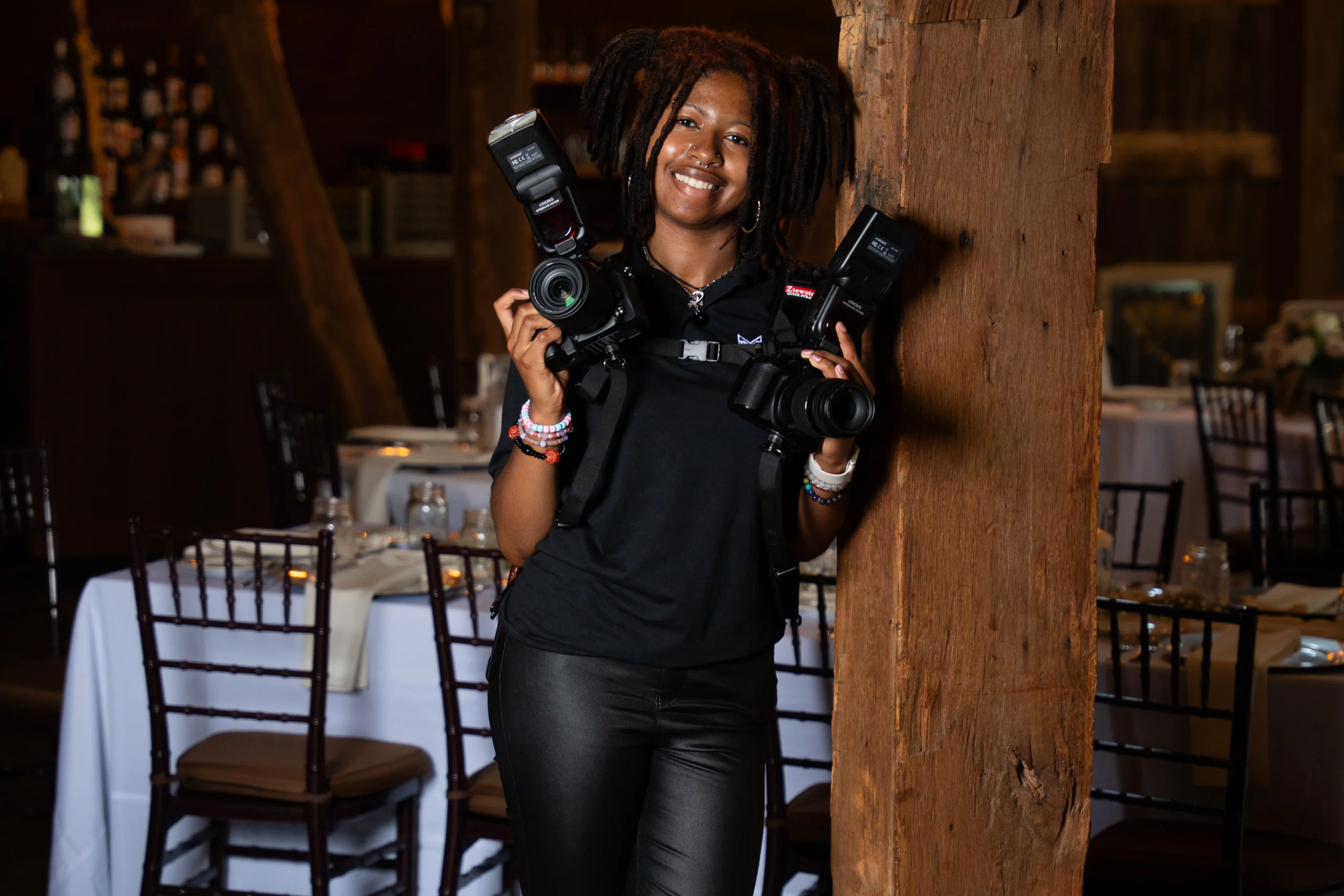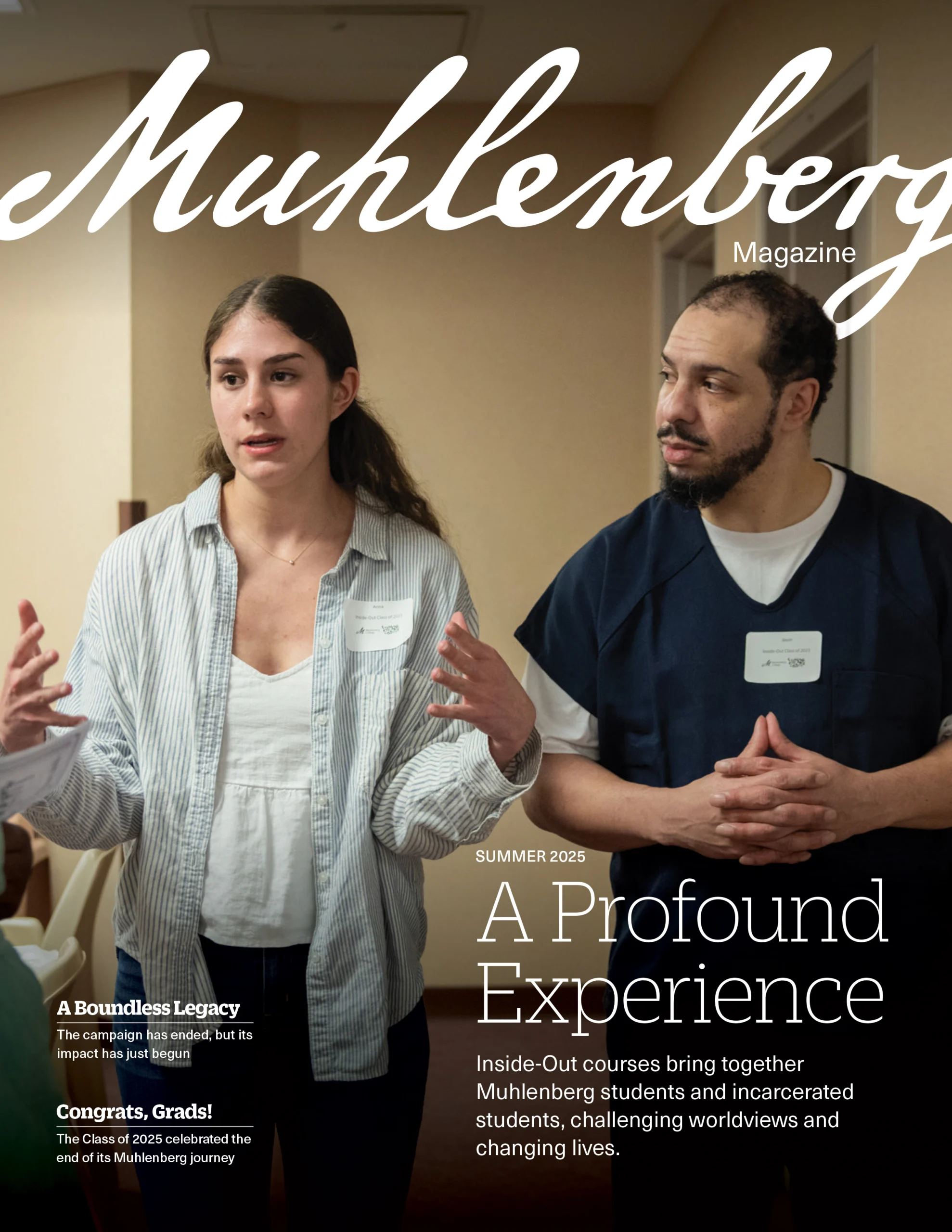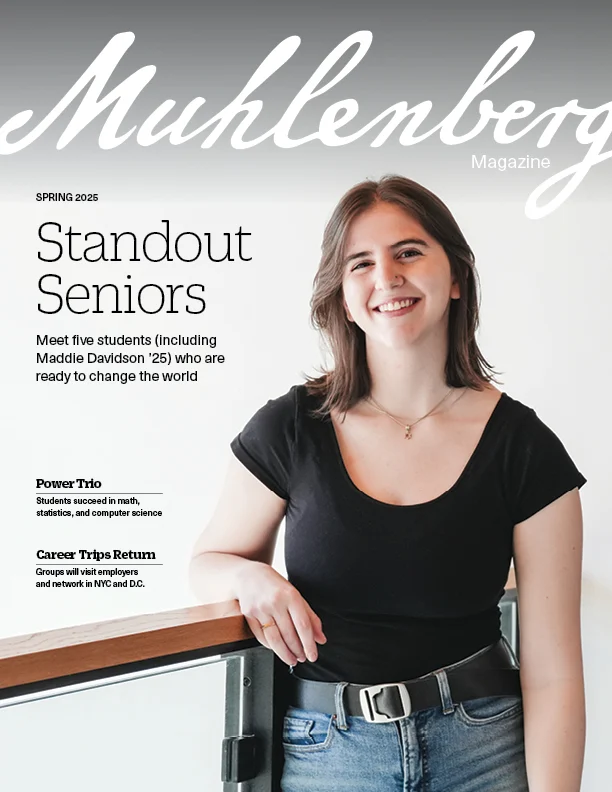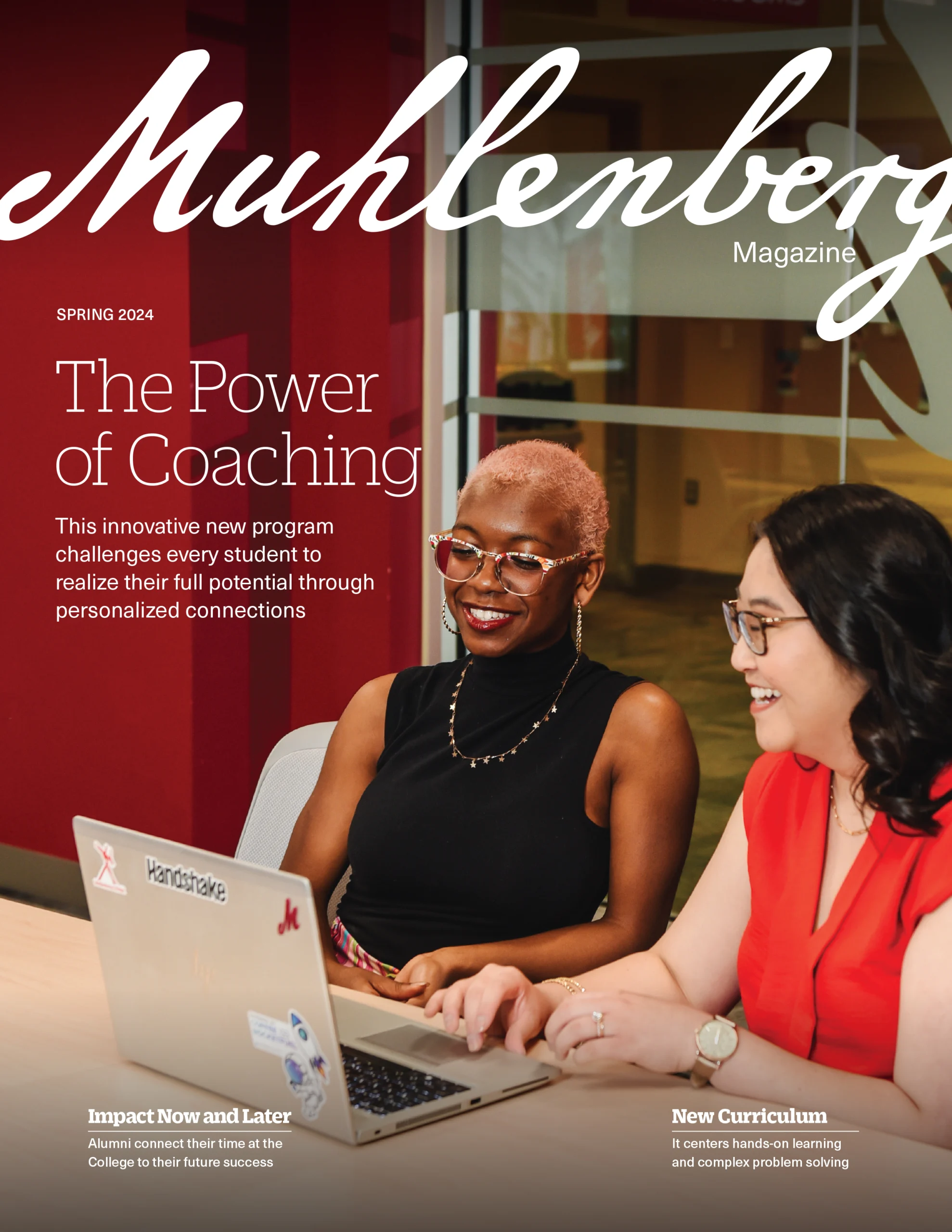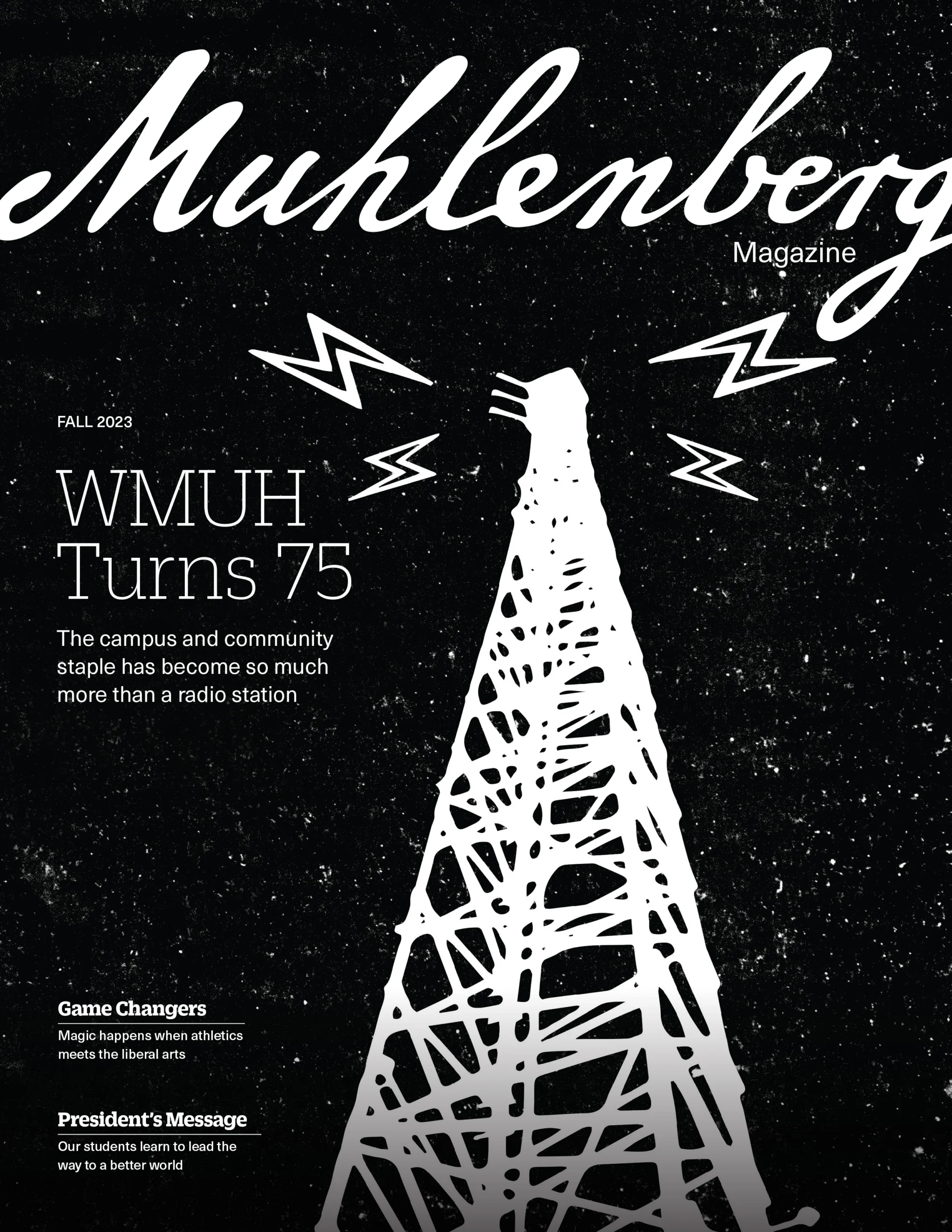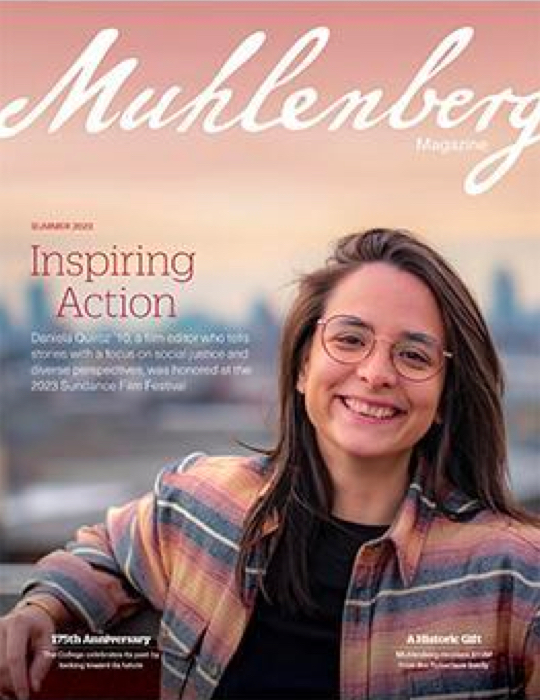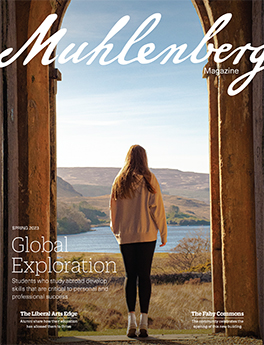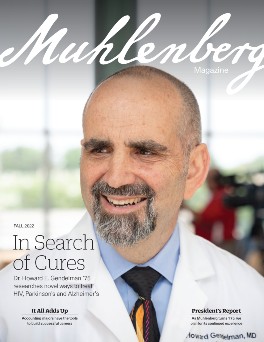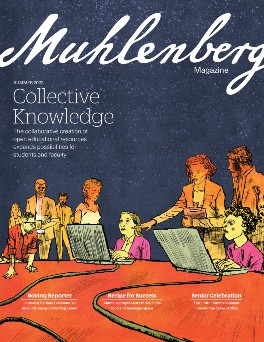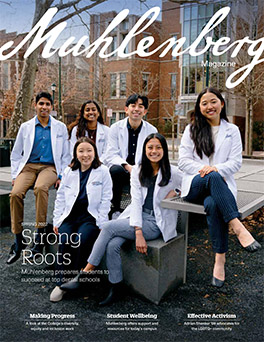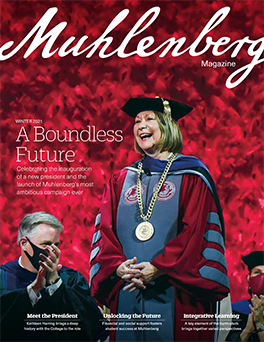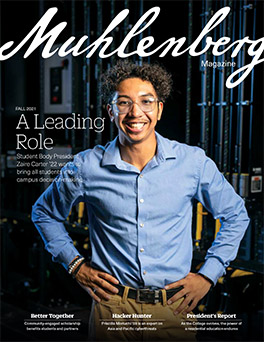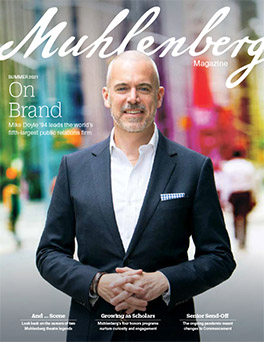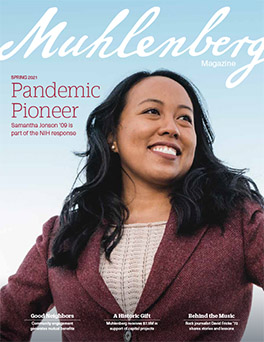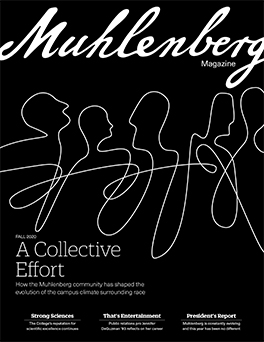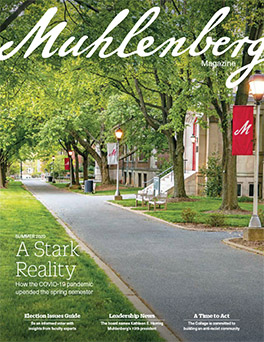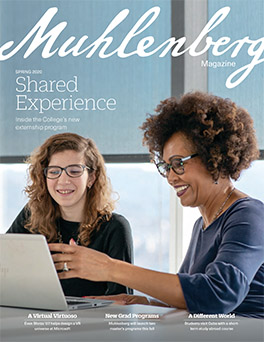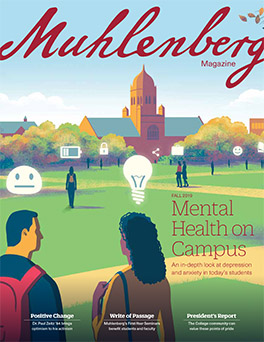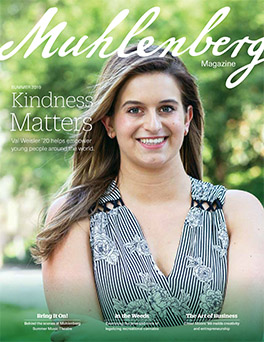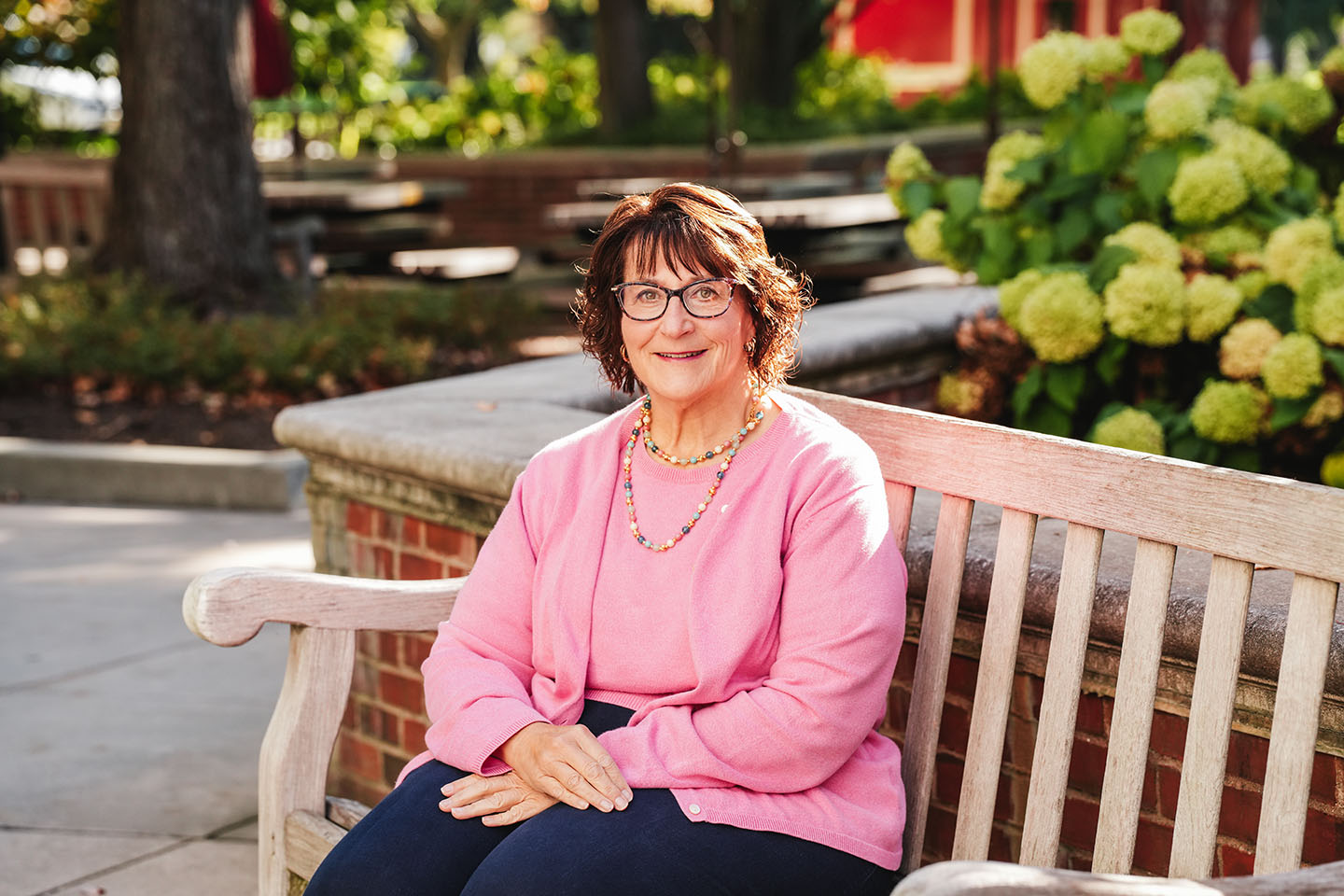Walk down the snack aisle of any grocery store and you’re guaranteed to spot a favorite food that Linda Letcher ’81 has contributed to developing as a food scientist. Recently retired after a 36-year career in various divisions of what is now Kraft Foods and Mondelēz International, Letcher has worked on iconic brands such as Oreo, Jell-O, Miracle Whip and Kraft Mac & Cheese.
“My first job out of college was in the Kool-Aid group. In 1984, powdered soft drinks were quite big,” Letcher says. “One of my first projects was to develop a new flavor of Kool-Aid.” (That new flavor was strawberry-banana, called “Strawberry Falls.”)
Letcher’s foundation for a career in scientific research and development was laid at Muhlenberg, where she earned a chemistry degree. She had always been interested in science, and when a Muhlenberg admissions counselor spoke at her high school in Pottsville, Pennsylvania, she knew that’s where she wanted to attend.
“I come from a very lower-middle-class family, so I go home and I tell my mom, ‘Oh, these people from Muhlenberg came,’ and she’s like, ‘Linda, forget it. It’s never happening for you. We cannot even think to afford that,’” Letcher recalls. But she kept pushing, and her parents relented enough to let her apply. “Thank goodness I got a lot of financial aid because that’s the only way I could afford to go. And it’s the reason I continue to give back today, because without other people having given, I couldn’t have gone.”
Letcher loved the chemistry department at Muhlenberg, in part because of the small size of the classes, which allowed the students to get close to one another and their professors. One of her favorite memories is taking an Advanced Analytical Chemistry final.
“Thank goodness I got a lot of financial aid because that’s the only way I could afford to go [to Muhlenberg]. And it’s the reason I continue to give back today, because without other people having given, I couldn’t have gone.”
The class of about six students studied together all night before the test. The next morning, they showed up looking tired and nervous, and their professor, Donald Shive, greeted them with coffee, orange juice and homemade muffins. “We were just sitting in our chairs like, ‘Enough already, give us the test!’” Letcher says. Shive wrote three questions on the chalkboard and announced that it was the final exam. The group was floored — the questions were easy. “I realized that at that point, he knew us so well [that] he knew whether we knew our stuff or not. That was always such a fond memory because it’s indicative of the relationship I think the professors had with the students.”
After graduating, Letcher was exploring ways to apply her science background to the working world. “I knew I didn’t want to do hardcore science. I wanted to find something that when you talked to people about it, they understood,” she says. Her older sister’s roommate at Penn State had studied food science, which she had previously never heard of. “The more I looked into food science, the more I was like, ‘This is exactly what I want.’”
“I knew I didn’t want to do hardcore science. I wanted to find something that when you talked to people about it, they understood. The more I looked into food science, the more I was like, ‘This is exactly what I want.’”
Letcher completed her master’s degree in food science at the University of Massachusetts Amherst. After graduating, she got her first job in research and development (R&D) at what was then General Foods, and her decades-long career got started.
That career has taken Letcher to different departments, states and even countries. In 2010, she was working in R&D at Kraft’s Illinois headquarters in the grocery division and looking for an opportunity that would enable her to transfer back to the East Coast. What came up instead was an opportunity to go a lot farther east.
“They needed someone to go to Europe to help the team from a newly acquired French business integrate into Kraft,” Letcher says. “I never imagined living outside the United States, but once it was presented to me, I thought, ‘Wow, this is a challenge,’ and I can’t turn down a challenge. That’s just part of my personality, and maybe that came from Muhlenberg as well.”
“I never imagined living outside the United States, but once it was presented to me, I thought, ‘Wow, this is a challenge,’ and I can’t turn down a challenge. That’s just part of my personality, and maybe that came from Muhlenberg as well.”
Letcher spent four-and-a-half years in Paris, where she picked up some French (she didn’t speak a word before arriving) and learned to appreciate elements of French culture, being surrounded by art everywhere and savoring time away from work.
When she returned to the U.S., she was happy to be close to her family again in Pennsylvania and became the director of global biscuits innovation and technology for Mondelēz International (which had split from Kraft). Letcher worked to solve problems like how to ensure that a cookie would bake evenly while moving through a football-field sized oven and how to ensure batches would bake the same at different factories. She also developed new technologies that would improve the nutrition of cookies and crackers and lead to new snack offerings.
Letcher retired in 2021, though she’s just as busy as ever, volunteering and traveling. At press time, she was about to head to North Carolina to attend the wedding of her Muhlenberg roommate’s daughter.
Reflecting on her career, Letcher is gratified that she spent her time in an industry that impacts so many people. “When you go to the grocery store, people have no idea of the science behind all the products on those shelves — and the scientists behind all that.”

